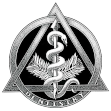We all need saliva to moisten and cleanse our mouths and digest food. Saliva also prevents infection by controlling bacteria and fungi in the mouth. When we don’t produce enough saliva, our mouth gets dry and uncomfortable. Reduce saliva flow that results in a dry mouth is a common problem among older adults. It is caused by certain medical disorders and is often a side effect of medications such as antihistamines, decongestants, pain killers and diuretics. Some of the common problems associated with dry mouth include a constant sore throat, burning sensation, problems speaking, difficulty swallowing, hoarseness or dry nasal passages. Left untreated, dry mouth can damage your teeth. Without adequate saliva to lubricate your mouth, wash away food, and neutralize the acids produced by plaque, extensive decay can occur. Sugar-free candy or gum stimulates saliva flow, and moisture can be replaced by using artificial saliva and oral rinses.
Read MoreBlog
Eliminate Bad Breath
Do you ever worry that you’re the only one in the room with bad breath? Well, guess again. Nearly 40,000,000 Americans commonly suffer from bad breath, also known as oral malodor or halitosis. Yet, it is a curable condition that is generally caused by strong foods (such as onions or garlic), poor oral health habits or medical problems (such as stomach disorders, an excessive postnasal drip or bacteria in the mouth). Once you discover the source of the problem, there are a number of ways to keep your mouth free of unpleasant odors.
Read MoreHow Often Should You Replace Your Toothbrush?
The American Dental Association recommends getting a new toothbrush (or brush head, if you use an electric toothbrush) about every three months–more because of the wear on the bristles than germs.
Read More



